Fall 2022 Newsletter
Voices from STEEP
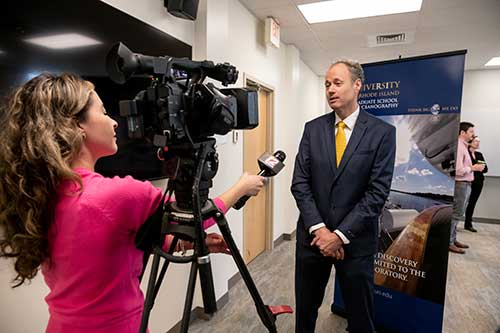 “Program renewal means STEEP can continue to produce the solid science needed to respond to PFAS problems, while the latest round of federal actions and support for PFAS treatment helps affected communities receive clean drinking water.”
“Program renewal means STEEP can continue to produce the solid science needed to respond to PFAS problems, while the latest round of federal actions and support for PFAS treatment helps affected communities receive clean drinking water.”
Rainer Lohmann, STEEP Director, October 6, 2022. STEEP was renewed through NIEHS for $8.1M over the next five years.
 Research Highlights
Research Highlights
A food web model to predict PFAS bioaccumulation in fish and support advisories for public health
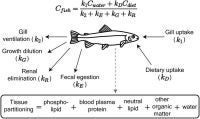
Dietary exposure is a main pathway of PFAS bioaccumulation in humans, particularly in the case of seafood. Some PFAS exhibit bioaccumulation in aquatic food webs, which poses risks to fishing communities and consumers. STEEP researchers at Harvard University optimized an aquatic food web model to predict the bioaccumulation behavior of a suite of PFAS. Read More…
PFAS precursors underscore importance for fishing advisories
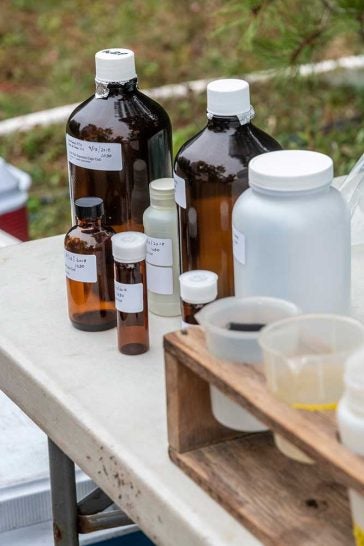
PFAS are widespread in the environment, and many are known to bioaccumulate in food webs. But little is known about the bioaccumulative potential of PFAS precursors, partly due to limitations in measurement techniques. This study used a toolbox of analytical methods to examine the bioaccumulative potential of PFAS and precursors in freshwater fish species from surface waters in New Hampshire. Read More…
Exposure to “alternative” PFAS alters gene expression & lipids in human liver cells
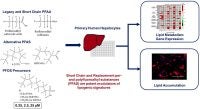
Shifts to produce “short-chain” PFAS chemicals compounds forecasted less harm to humans and the environment. However, a study from STEEP has found that “new” PFAS induce liver lipid accumulation and gene activation at lower exposure concentrations than legacy PFAS, with the potential for more detrimental impacts. Read More…
Children’s products, some identified as “green” or “non-toxic”, contain unlabeled PFAS

Researched investigated children’s apparel, bedding, and furnishings, and found PFAS ranged from 10 to 3660 parts per million (ppm) in 54 of 93 products, with highest concentrations in a water- and stain-resistant school uniform shirt. Read More…
Philippe Grandjean discusses PFAS effects on children with The Washington Post
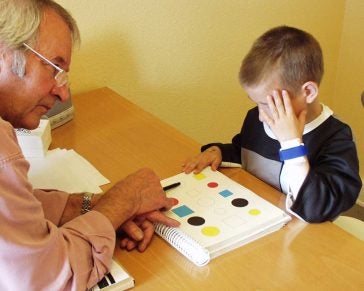
In the May 2022 issue of The Washington Post, STEEP Co-Director Grandjean elaborated on health risks associated with PFAS exposure, giving focus to a cohort of Faroese children who are vital to understanding the health implications of PFAS. Read More…
 Program Updates
Program Updates
STEEP launches $8.1 million renewal from NIEHS
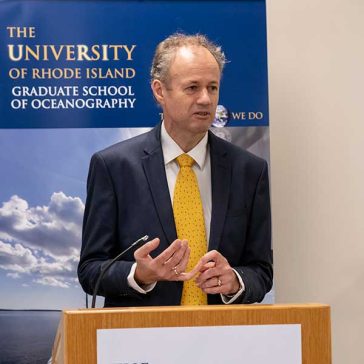
Against the backdrop of a new federal undertaking to address PFAS pollution, University of Rhode Island-based STEEP (Sources, Transport, Exposure and Effects of Per- and polyfluorinated alkyl contaminants), one of the longer running PFAS science efforts in the country, forges ahead with continued NEIHS support. Read More…
Silent Chemicals, Loud Science: STEEP Podcast Series
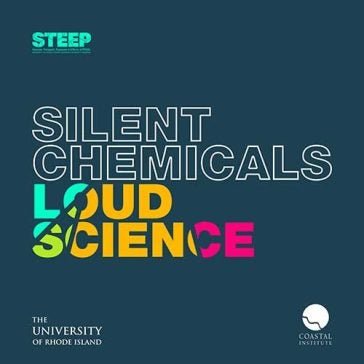
Our podcast series features experts who tell you what’s eating you — chemically speaking — even if you don’t know it. Read More…
 Awards and Achievements
Awards and Achievements
Rainer Lohmann named Fulbright Scholar for Arctic Initiative

Lohmann embarked on his research in the Faroes in June 2021, contributing to Fulbright Arctic Initiative III which includes scholars from the United States, Canada, Denmark, Iceland, Sweden, Norway, Finland, and Russia. Read More…
 STEEP Trainee Accomplishments
STEEP Trainee Accomplishments
Trainee Spotlight: Asta Habtemichael

Asta Habtemichael inducted in the into the inaugural cohort of American Association of Colleges and Universities (AAC&U) Future Leaders Society, finalist for the honorary K. Patricia Cross Future Leaders Award Read More…
Matthew Dunn
 Poster: “Seasonal and Source Dynamics of PFAS in the Pawcatuck River and Estuary” RI Department of Environmental Management Office of Land Revitalization & Sustainable Materials Management, Providence, RI. October 4, 2022.
Poster: “Seasonal and Source Dynamics of PFAS in the Pawcatuck River and Estuary” RI Department of Environmental Management Office of Land Revitalization & Sustainable Materials Management, Providence, RI. October 4, 2022.
Emily Kaye

Award: University of Rhode Island PhD Graduate Teaching Excellence Award, May 2022.
Poster: “Developmental exposure to a PFAS mixture: PFOA, PFOS and PFHxS significantly alters the pup liver proteome in CD-1 mice.” Society of Toxicology annual meeting (Session: PFAS I), San Diego, CA. March 28, 2022.
Melissa Woodward
 Award: K.C. Donnelly Externship Award from the NIEHS Superfund Research Program, 2022.
Award: K.C. Donnelly Externship Award from the NIEHS Superfund Research Program, 2022.
Read the 2025 Issue 1 Newsletter
Read the 2024 Issue 2 Newsletter
Read the 2024 Issue 1 Newsletter
Read the Spring/Summer 2023 Newsletter
Read the Winter 2023 Newsletter
Read the Winter 2022 Newsletter
Read the Spring 2021 Newsletter

